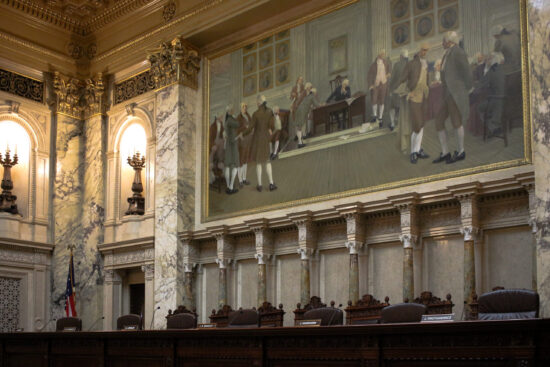
An Update on Eminent Domain in Wisconsin
On June 19, 2024, the Wisconsin Supreme Court reached a decision in the Sojenhomer LLC v. Village of Egg Harbor litigation case. This court case was a lengthy dispute that began in 2023 between a business owner (Sojenhomer) in Egg Harbor and the village, which centered around the legality of Egg Harbor’s condemnation of .009 acres of Sojenhomer LLC’s private business property to build a sidewalk.
In the case, Sojenhomer LLC argued that Wisconsin state statutes indicate it is not legal for a local municipality to condemn private property for defined “pedestrian ways.” Egg Harbor argued that, with the way that the state defines “pedestrian way,” sidewalks don’t necessarily fall under the category of “pedestrian way.” Ultimately, the state Supreme Court sided with the Village of Egg Harbor. In their decision, the court stated the following:
“When read in context, the definition of pedestrian way in [state statute] 346.02(8)(a) does not include sidewalks. Accordingly, we hold that [state statute] 32.015 and 61.34(3)(b) did not prohibit the Village from condemning Sojenhomer’s property, and [we] reverse the court of appeals’ contrary decision. If the legislature wanted to prohibit the use of condemnation to build sidewalks anywhere in the state, then they could have done so clearly. And it would have been easy to do so, either by specifically referencing sidewalks in [state statute] 32.015 and 61.34(3)(b), or by adding them to the definition of pedestrian way in Wisconsin [state statute] 346.02(8)(a). But they did not. Instead, they [the legislature] incorporated a seldom-used phrase, “pedestrian way,” which context and history indicate does not include sidewalks. Given that, we conclude that the definition of “pedestrian way” in [state statute] 346.02(8)(a) does not include sidewalks, and accordingly hold that the limitations on condemnation in [state statute] 32.015 and 61.34(3)(b) did not prohibit the Village from condemning Sojenhomer’s property to build a sidewalk.”

Though this decision is technically a “win” for pedestrians and alternative transportation, it may ultimately muddy the waters when it comes to the eminent domain issue moving forward. Due to the state’s broad and confusing definitions of “pedestrian way” and “sidewalk”, we anticipate more legal conflicts surrounding this issue moving forward. Additionally, the decision is likely to create more tension around the eminent domain issue between private property owners, local authorities, and those who want more bike/ped infrastructure for safe, alternative travel.
The Wisconsin Bike Fed has always been an advocate for the legal restoration of local powers to use condemnation authority for bicycle and pedestrian infrastructure since that power was taken away from local authorities in the 2017 Wisconsin State Budget. Visit our website to read our thoughts on Eminent Domain and get a refresher on Eminent Domain’s history in the state.
Want to help us work towards restoring eminent domain powers for local authorities?
Visit our “contact your legislators” page under our “advocacy” tab on our website to email your legislators and let them know you think your community would benefit from eminent domain’s full restoration.